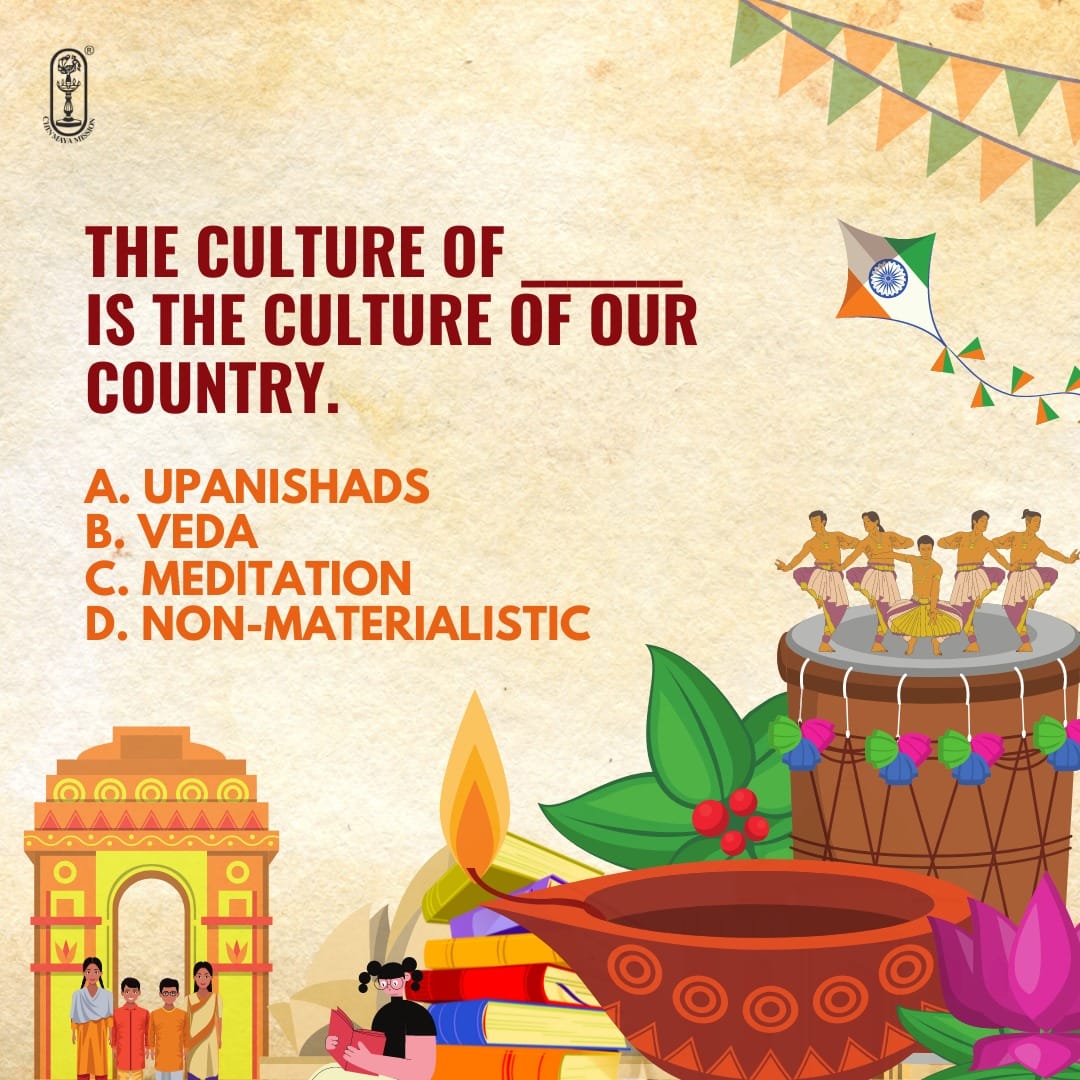The Six Systems of Philosophy in India - 3. Swami Krishnananda.
=========================================================================
=========================================================================
Wednesday, June 03, 2022. 06:00.
(Spoken on May 8, 1997)
Post-3.
=========================================================================
The next section of the Vedas is called the Brahmana, which is a descriptive catalogue in prose of all the methods to be employed in using these mantras, or hymns, of the Vedas in sacrificial or ritualistic performances. The Purva Mimamsa mainly concerns itself with ritual, how a particular mantra or a hymn of the Veda is to be utilised to invoke a particular God. “Indraya svaha, Varunaya svaha,” etc., we say. There is a very complicated and mathematical process of the Purva Mimamsa, which gives great details of the method of performance of these sacrifices for the satisfaction of the gods in heaven. Every mantra of the Samhita portion of the Veda is an invocation of a divinity. It is a prayer to a particular god, and it is believed that the form of the deity is hidden in the structural pattern of the mantra itself. We may say that the mantra is a geometrical pattern which explains the nature of the deity—so much so, that when we recite the mantra properly, the deity immediately manifests itself. The deity is summoned, provided our recitation has the correct intonation and pronunciation, which is to be very exact, very precise. If we make a change in the intonation of the mantra, it will produce adverse effects.
In this connection, there is a story of an event which took place in heaven. There was a battle between the gods and the asuras, and someone who was against Indra wanted the celestial priests, the rishis, to perform a sacrifice by which a deadly foe of Indra would rise from the fire and destroy him. But the rishis did not want such a sacrifice to be performed. Why should they participate in a sinister sacrifice which attacks Indra, who is the god of the heavens? But they agreed to perform the sacrifice. What they did was, they uttered the mantra, which literally meant “enemy of Indra, rise from the fire”: Indra shatru, vivardhasva. But “enemy of Indra, rise” can have a dual meaning. What is the meaning of “enemy of Indra”? It may be an enemy to be devastated by Indra, or it may be something which will devastate Indra. It is like the Oracle of Delphi. People used to ask the Oracle of Delphi whether the Greeks would win or the Romans would win, and the oracle would say, “The Greeks the Romans shall conquer.” What do we make from this statement? Who will conquer whom? It can be either way. Likewise, in an equivocation the rishis changed the tone of this invocation. Though according to the literal pronunciational aspect of the chant it looked as if a destroyer of Indra would be produced, due to a change in the intonation, what happened was the reverse. Something was produced which was to be destroyed by Indra. This is the greatness of the Veda mantra.
These investigations are carried on by the Purva Mimamsa, though our subject is something different. All that I have told you is only a kind of preliminary introduction to the main theme—namely, the Brahma Mimamsa, investigation into the nature of the Supreme Being. It is called the Brahma Sutras. As I mentioned, the sutras are pithy statements; and especially the Brahma Sutras is very difficult. If we read just the sutra, we will make no sense out of it because it is only two or three letters. Without the help of a commentary, the sutra on Brahman cannot be understood. While the Purva Mimamsa, or Karma Mimamsa, is concerned with the mantras, the Samhitas and the Brahmana portion of the Vedas, the Brahma Sutras is concerned with only the Upanishads, which deal with the nature of the Ultimate Reality, or the Absolute.
*****
To be continued .....
=========================================================================


.jpg)



Comments